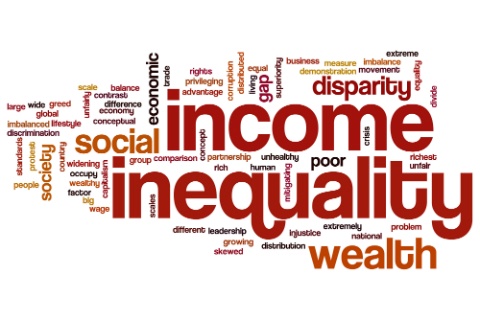If you don’t know it already, a study by Oxfam confirms that the rich in the world are getting richer, with the lion’s share of the wealth going to the top 1%.
Of the £7.3 trillion that was generated worldwide between July 2016 and June 2017, about £6 trillion (or 82%) went to the 75 million people who make up only 1% of the earth’s population, a new study by Oxfam, a global conglomerate of Charitable Organizations, reveals.
Due to this unequal distribution of wealth, Oxfam says, one billionaire was created around the world every two days last year. In other words, there were more billionaires around the world last year – 2,043 to be exact, than at any point in the history of this world.
This report has come at the heels of the World Economic Forum summit, which is due to take place in Davos, a Swiss Ski Resort, later this week. The summit which takes place every year is attended by the world’s richest – bank owners, finance ministers, oil magnates – and the purpose of this report by Oxfam is to place income inequality at its center stage.
In the report, which is titled “Reward Work, Not Wealth”, Oxfam isn’t merely pointing at the symptoms of the income inequality. It is moving one step ahead by listing out a series of actions which the Governments around the world could take to address this problem.
The actions which Oxfam says could reduce Income Inequality, include, limiting the potential returns to top executives and shareholders, making sure workers receive a minimum “living wage”, and going ahead with policies to remove the gender pay gap.
Furthermore, the report also wanted the Governments to compress tax avoidance and other such practices which have become famous with the unveiling of “Paradise Papers” and the “Panama Papers”. Oxfam warns that if the Governments do not “get into the driving seat”, the nationalist and populist tides will only get more acute.
How Oxfam gets these figures?
Just like it has done in the previous years, Oxfam got this year’s data from the Credit Suisse Wealth datebook and Forbes, both of whom give data based on the global distribution of wealth dating back to the year 2000.
Apart from using the value of the assets which an individual holds, the survey records the value of their property and land, minus debts, to gauge how much an individual “owns”. The data doesn’t consider wages or income.
